ERP, or enterprise resource planning, systems like Netsuite are an essential tools for modern manufacturing businesses of all sizes. They help manufacturing companies streamline their operations, improve efficiency, and gain real-time visibility into every aspect of their business. One ERP system for manufacturing that has gained popularity in recent years is NetSuite ERP.
Today, Netsuite is used by hundreds of manufacturers including 3M, Honeywell, Jabil, Flextronics, Celestica, Ingersoll Rand, Pentair, Rockwell Automation, TE Connectivity and Amphenol.
In this blog post, we will explore the suitability of NetSuite ERP for manufacturing businesses, looking at the pros, cons, features, alternatives, costs and more.
Introduction to NetSuite ERP
NetSuite ERP is a cloud-based ERP system that offers a wide range of capabilities to help businesses manage their operations. It is designed to be an all-in-one solution, meaning it can handle everything from financials and accounting to inventory management and e-commerce. This makes it an ideal choice for manufacturing businesses that are looking to simplify their IT landscape and reduce the number of systems they need to manage.
Benefits of NetSuite for Manufacturing
NetSuite ERP offers a number of benefits to manufacturing businesses, including:
Real-time visibility into operations:
With NetSuite ERP, manufacturing businesses can get real-time visibility into every aspect of their operations, from production and inventory levels to order status and shipping. This helps them make more informed decisions and react quickly to changes in demand or supply.
Improved efficiency through automation:
NetSuite ERP automates many of the repetitive tasks involved in manufacturing, such as inventory management, supply chain management, and accounting. This helps reduce the risk of errors and frees up time for employees to focus on more strategic tasks.
Better inventory management:
NetSuite ERP offers advanced inventory management capabilities, including real-time inventory tracking, lot and serial number tracking, and reorder point management. This helps manufacturing businesses keep track of their inventory levels and ensure they always have the right amount of materials on hand.
Enhanced supply chain management:
NetSuite ERP can help manufacturing businesses optimize their supply chain by automating the process of ordering materials and tracking deliveries. It also allows them to collaborate with suppliers and vendors in real-time, making it easier to manage the flow of goods.
Increased collaboration across departments:
NetSuite ERP makes it easy for employees across different departments to share information and collaborate on tasks. This improves communication and helps ensure that everyone is working towards the same goals.
Key Features of NetSuite ERP for Manufacturing
NetSuite ERP offers a number of key features that are particularly useful for manufacturing businesses, including:
Bill of Materials (BOM) management:
This feature allows manufacturers to create and manage detailed bills of materials for their products, including information on the materials and labor required to produce them.
Work order management:
NetSuite ERP's work order management feature makes it easy for manufacturers to create, track, and manage work orders, including scheduling and capacity planning.
Capacity planning:
NetSuite ERP includes powerful capacity planning capabilities that help manufacturers plan and schedule production runs, track machine utilization, and optimize their production schedule.
Shop floor control:
This feature allows manufacturers to track the progress of work orders on the shop floor in real-time, making it easy to identify and resolve bottlenecks.
Quality control:
NetSuite ERP includes quality control capabilities, such as the ability to track and manage non-conformance reports, that help manufacturers ensure that their products meet the required quality standards.
Want to find out what else Netsuite can do? Download out free Netsuite ERP Guide below.
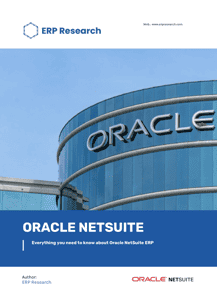
Download the complete Netsuite ERP Guide
Our Experiences with Netsuite for Manufacturing
To illustrate the benefits of NetSuite ERP for manufacturing businesses, let's look at a real-world example of a company we worked with that successfully implemented the system.
The business in question is a mid-size manufacturing company that specializes in producing custom-made metal products for a variety of industries. Before implementing NetSuite ERP, the company faced a number of challenges, including:
- Difficulty in keeping track of inventory levels and managing stockouts
- Inefficient processes for managing work orders and production schedules
- Lack of visibility into the status of orders and deliveries
- Difficulty in communicating and collaborating with suppliers and vendors
By implementing NetSuite ERP, the manufacturing company was able to solve these challenges and achieve a number of benefits, including:
- Real-time visibility into inventory levels, which helped them avoid stockouts and optimize their production schedule
- Streamlined work order management and production scheduling, which helped them improve efficiency and reduce lead times
- Improved communication and collaboration with suppliers and vendors, which helped them optimize their supply chain
- Reduced costs and improved profitability
Netsuite for Manufacturing Costs
Implementing NetSuite for a manufacturing business can be a cost-effective solution for streamlining operations and improving overall efficiency. However, before embarking on the implementation process, it is important to understand the potential costs involved.
First and foremost, the cost of the NetSuite software itself will vary depending on the specific package and level of customization required for your manufacturing business. NetSuite offers several different packages, including Standard, Advanced, and Enterprise, each with varying levels of functionality and pricing. Additionally, customizations and integrations with other software or systems will also add to the overall cost.
Another cost to consider is the cost of the implementation process. Depending on the size and complexity of your manufacturing business, this can range from a few thousand dollars for a simple implementation to tens of thousands of dollars for a more complex one. This cost will typically include the setup and configuration of the software, as well as any necessary customizations or integrations. Additionally, it's important to budget for ongoing maintenance and support for the software.
Additionally, it's important to consider the cost of training for your employees. It's essential that your employees are trained to use the software effectively, which may require additional costs for training materials, classes or hiring a consultant.
It's also worth noting that there are other costs associated with implementing NetSuite that may not be immediately obvious. For example, data migration from your current systems to NetSuite can be a time-consuming and costly process. Additionally, you may need to make changes to your current processes and procedures in order to fully take advantage of the software's capabilities, which can also add to the overall cost.
Challenges to Consider When Implementing NetSuite
While NetSuite ERP can offer many benefits to manufacturing businesses, there are also a number of challenges to consider when implementing the system, including:
Integration with existing systems:
If your manufacturing business already has other systems in place, such as a CRM or accounting software, you will need to ensure that they can integrate with NetSuite ERP.
Data migration:
Moving your data from existing systems to NetSuite ERP can be a complex and time-consuming process. You will need to ensure that your data is accurate and complete before migrating it to the new system.
Training and adoption:
To ensure that your employees can make the most of NetSuite ERP, you will need to provide adequate training and support. This includes not only training on how to use the system but also training on how to use it to improve their work processes.
Ongoing maintenance and support:
As with any software system, NetSuite ERP will require ongoing maintenance and support to ensure that it continues to function correctly and meet your business needs.
Alternatives to Netsuite for Manufacturing
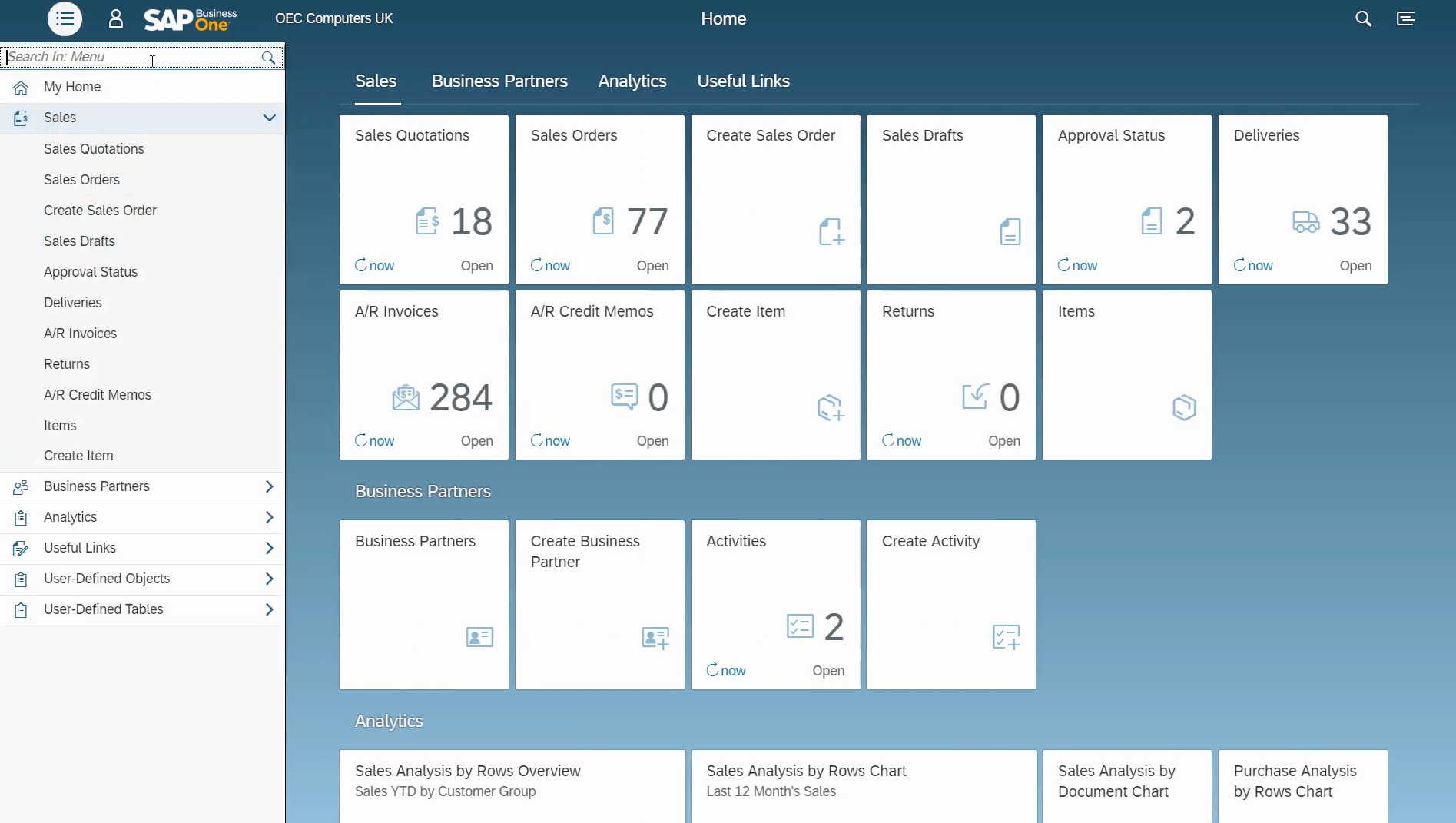
SAP Business One is a popular ERP software for small and medium-sized manufacturing businesses. It offers similar functionality to NetSuite, including financial management, inventory management, and production planning.
Download our full guide to SAP Business One here.
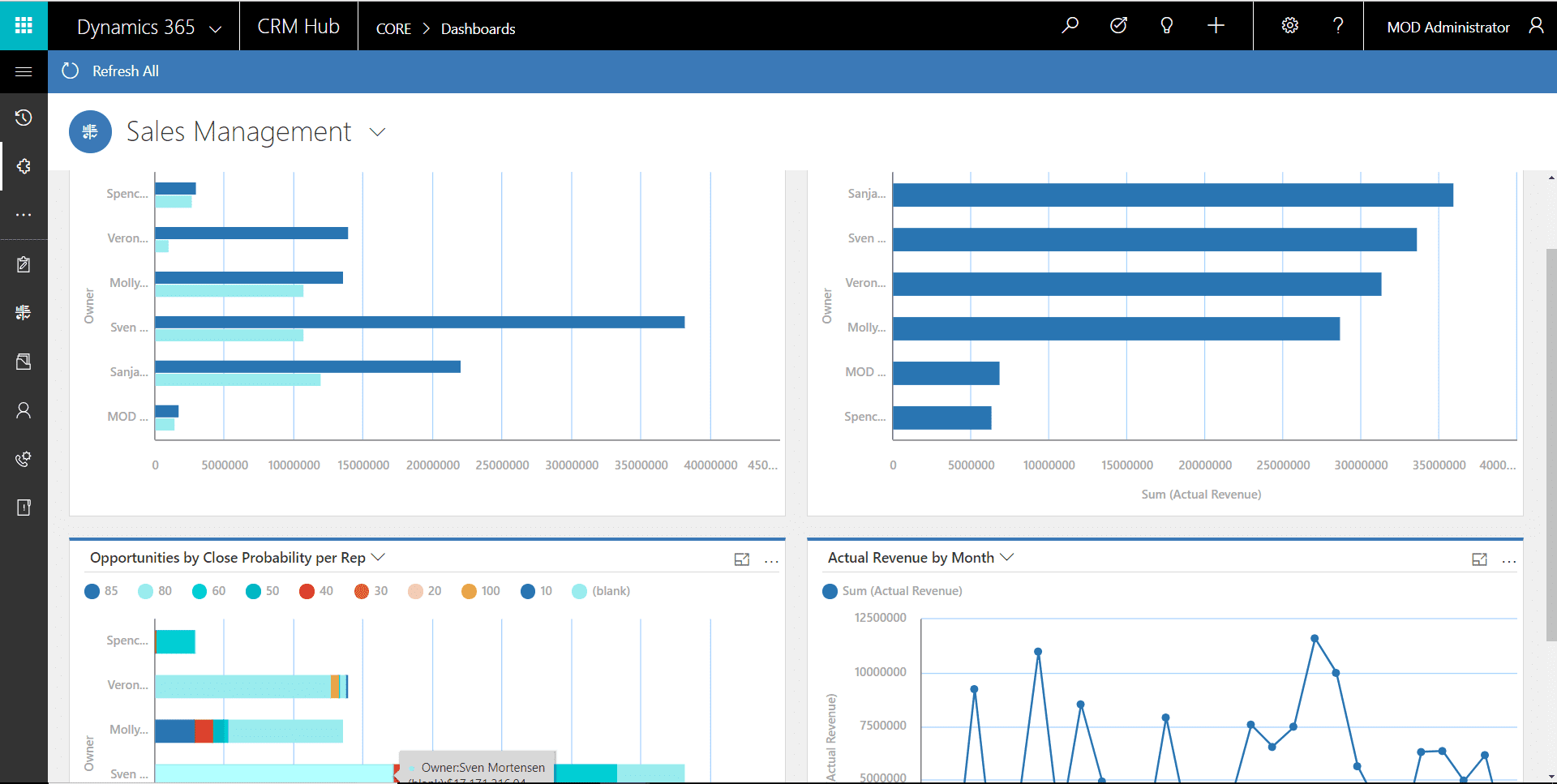
This software is a cloud-based ERP solution that includes modules for financial management, inventory management, and production planning. It is designed for small and medium-sized businesses and is comparable in functionality to NetSuite.
Download our full guide to Microsoft Dynamics here.

Epicor is a comprehensive ERP solution for manufacturers, offering modules for financial management, inventory management, production planning, and more. It is a popular alternative to NetSuite for manufacturers of all sizes.
Download our full guide to Epicor here.
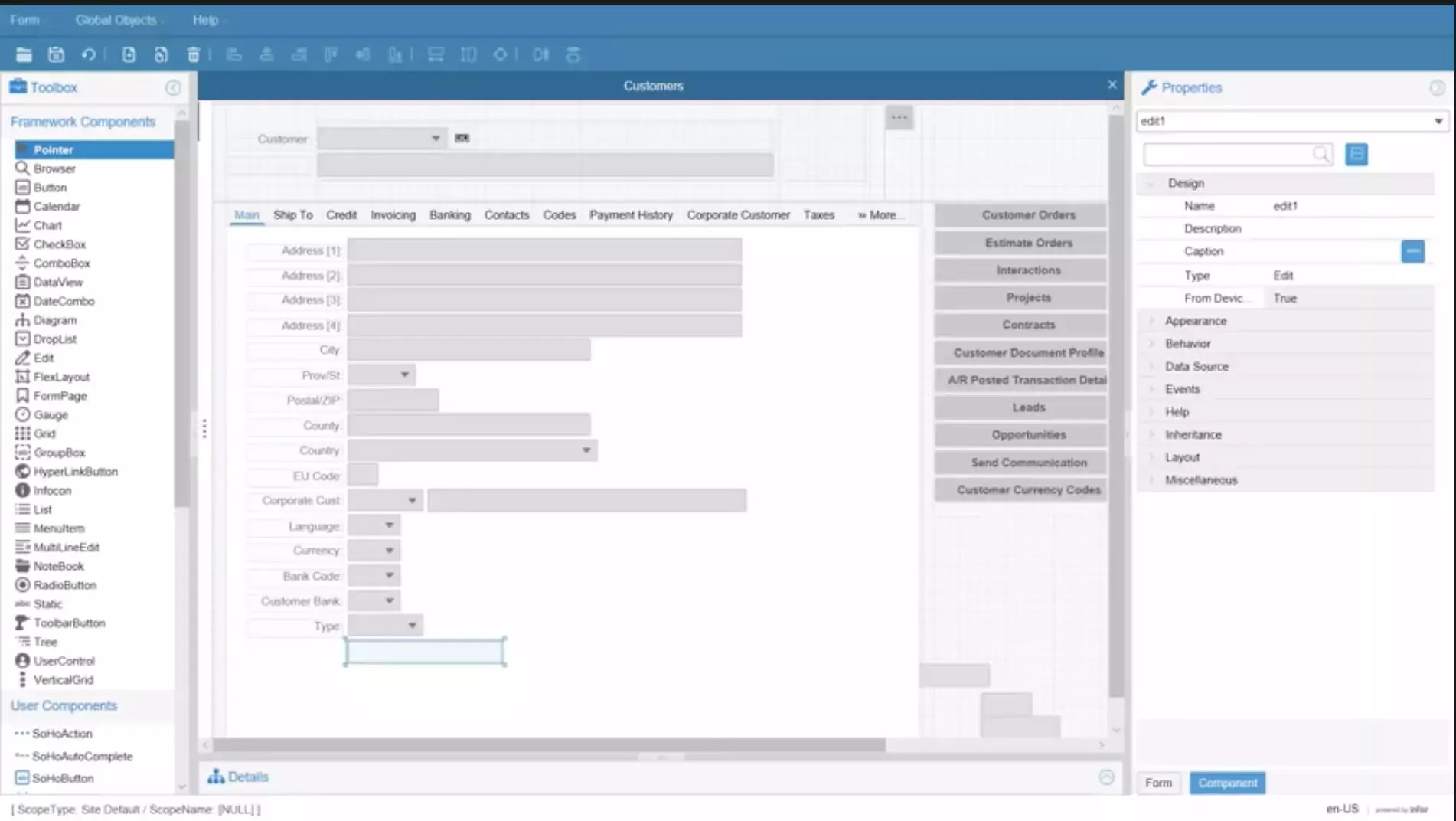
Infor CloudSuite is an ERP software that offers a variety of modules for financial management, inventory management, production planning, and more. It is designed for small and medium-sized businesses, and is a popular alternative to NetSuite.
Download our full guide to Infor CloudSuite Industrial here.
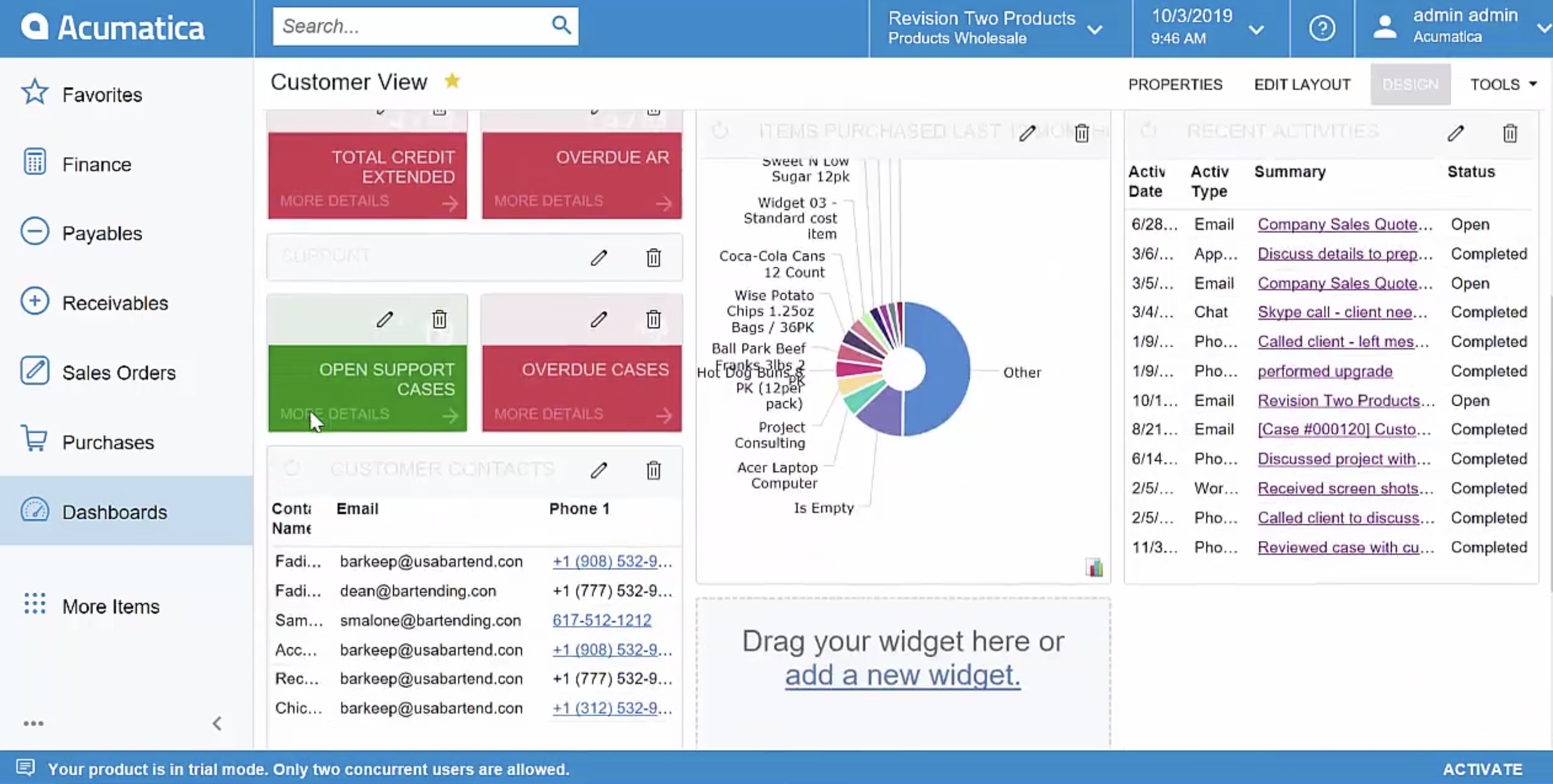
Acumatica is a cloud-based ERP software that offers similar functionality to NetSuite, including financial management, inventory management, production planning, and more. It is designed for small and medium-sized businesses and is a popular alternative to NetSuite.
Download the full guide to Acumatica here.